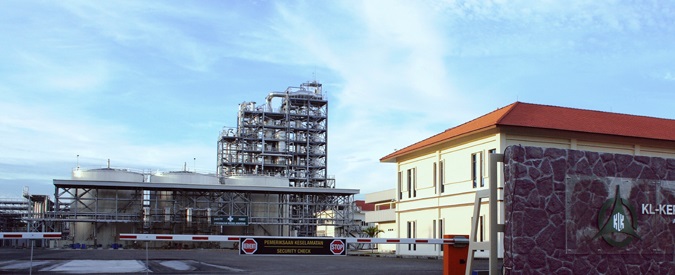Malaysias KLK Oleo Sdn increased its ester production capacity by 40 percent with thecompletion of a new plant in Klang, Malaysia.
The 40 million Malaysian ringgit (U.S. $9 million) new facility has capacity to make 10,000 metric tons per year of specialty esters, increasing KLKs total capacity at four ester plants to 35,000 t/y.Esters made at the Klang plant will be primarily exported to China and Europe for use in biobased lubricants and cosmetics.
The new ester plant is expected to pave the way for the business to venture into more products for cosmetics, toiletries and [biobased] lubricant applications, CEO Lee Oi Hian said in the companys 2016 annual report. Ester sales remained solid, although we see strong price competition ahead, he added. The division of the esters portfolio into specialty and industrial segments has given the business more focus, enabling the business to pursue expansion plans.
KLKs palm oil-derived esters can be used as base fluids for biobased lubricants, or can be blended with other esters, mineral oils or synthetic oils in lubricant formulations, according to the Malaysian Palm Oil Board.
KLK markets some esters under the Hedipin brand name as additives and viscosity modifiers for lubricants and metalworking fluids and claims that they have outstanding oxidative and thermal stability. It also sells fractionated methyl esters as detergent surfactants for lubricants under the Palmere brand.
Last year, KLK Oleos gross profit increased 75 percent to RM 299 million. In addition to esters, the company produces a wide range of palm oil-based fatty acids and surfactants.
KLKs parent company, Kuala Lumpur Kepong Bhd, is listed on the main board of the Bursa Malaysia with a market capitalization of RM 26.5 billion. The 100-year-old company manages palm and rubber tree plantations in Malaysia and Indonesia.
Malaysia is the worlds largest producer of oleochemicals, according to the Malaysian Investment Development Authority.

Photo: KLK Oleo Sdn